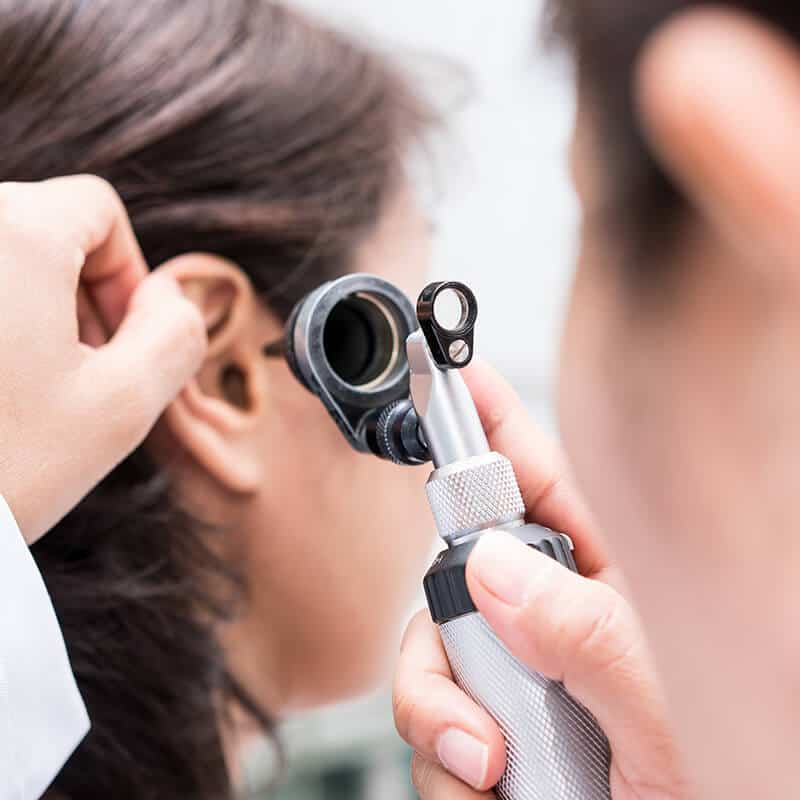Hearing & Balance Disorders
Did you know that your ears play a big role in balance? We often take balance for granted and rarely think about how we move through our environment. However if you experience vertigo or dizzy spells and struggle with your balance, you are aware of how important balance is in every aspect of your life. Dizziness, or that feeling of unsteadiness and disorientation, can stem from a problem in your ears or central nervous system. Understanding where your symptoms are coming from can help you manage the symptoms of a balance disorder. Our Doctors of Audiology specialize in the diagnosis of various types of balance disorders. With our extensive network of professionals, we will make sure that your treatment plan will help you to manage your dizziness and balance difficulties.
How Balance Works
Ever wondered how you’re able to keep your balance? It’s all in your ears! Not only does the inner ear allow you to hear, the fluid filled chambers of the inner ear, known as your vestibular system, are responsible for keeping you upright, and walking in a straight line. When you move, the fluid in your ears also ripples back and forth. The cells in the inner ear sense this motion, convert it into electrical impulses, and send it to the brain, where you interpret it as the movement of your head and your body. Along with signals from the ears, your brain gets input from your eyes and muscles. Your brain combines all this information to know where your body is in relation to the environment around you.

Balance Disorders
A balance disorder can be caused by a disturbance in your ears, eyes, or central nervous system. Determining the source of the dizziness through diagnosis with our Doctors of Audiology, will help you to find the appropriate treatment option. If you have a problem with your inner ear, the signals that your brain receives from your ears, eyes, and muscles won’t match. This can cause you to feel disoriented, “off balance”, or have a sensation of spinning. You may even feel nauseous. You might experience dizziness if there has been a change in blood circulation to your ears, or if the fluid in the inner ear experiences changes in pressure. Overstimulation, medication, or viruses can also cause problems with your balance system.
Balance Evaluations
To understand your balance disorder, our board certified Doctors of Audiology will perform a diagnostic balance evaluation test called Videonystagmography (VNG). The VNG system is the most advanced diagnostic system available today for diagnosis of balance disorders. The VNG evaluation consists of a series of visual tasks and body movements which are designed to assess your vestibular system and determine the location of the system causing your dizziness. The testing will usually take approximately 2 Hours. During the testing an infrared video headset is utilized to measure your eye movements. It is a non-invasive test that allows our Doctors of Audiology to assess your balance system. Please refer to the downloadable sections titled “VNG Instructions” for further information about this specific testing.
Ocular Mobility and Optokinetic Tests
Did you know that your eyes can tell us a lot about your balance systems? Your eye movements play a crucial role in evaluating your balance. Ocular Mobility and Optokinetic Tests use a series of lights to measure the visual portion of your balance system. It allows us to evaluate how your vision functions in roles related to balance, specifically accessing your visual tracking and visual mobility skills. These measurements can help identify any neurological issues related to the visual process, which may affect your balance. You’ll be asked to watch a small light as it moves and jumps. Our infrared video recording system will track your eye movements, allowing our Doctors of Audiology to measure and diagnose disorders of balance related to your visual pathways. We will assess whether the neural pathways connecting your eyes and ears to your brain are healthy.
Positional Nystagmus
Sometimes your symptoms of dizziness or imbalance are related to specific body movements. Utilizing our infrared video recording system, we are able to record how your balance systems react when your head is placed in different positions during the Positional Nystagmus Tests. Our Doctors of Audiology will ask you to move your head and body in specific ways, while we analyze any abnormal eye movements which would indicate that your inner ears aren’t properly tracking your movement. Once our Doctors of Audiology diagnose any positional causes of dizziness, the most likely treatment is continued in a physical therapy environment.
Caloric Testing
Each of your ears uses a system of fluid filled semi-circular canals within your vestibular system to maintain your balance. When one of these systems malfunctions or is weaker than the other, you can experience the symptoms of vertigo and imbalance. Caloric testing looks closely at your ear’s vestibular systems individually, allowing our Doctors of Audiology to determine if one or both of your vestibular systems is weak. The Caloric Test involves introducing some warm and cool air into your ear canals. By changing the temperature of the fluid in your vestibular system, we can activate each system in a controlled environment allowing us to measure the strength or weakness of each individual ear. You may experience some subjective “dizziness’ with this test, which typically will resolve quickly, within a few minutes. You should leave our clinic feeling about the same as you did when you arrived.
Treating a Balance Disorder
When it comes to treating a balance disorder, there are different options depending on the source of your dizziness. That’s why proper diagnosis of your symptoms by our Doctors of Audiology is so important. Our team of professionals will establish a plan of treatment for your individual needs. Options for treatment can include medications, diet modification, physical therapy, or other medical treatments.

Treating Hearing Loss in the Presence of Balance Disorders
Hearing loss often goes hand in hand with balance disorders. Not only does the fluid in your vestibular system help you maintain your balance, sounds give you a better understanding of where you are in relation to your environment. This process is called “localization”. If you can’t hear your footsteps, you’re missing part of the information your brain needs to keep you balanced. Treating your hearing loss can help reduce your risk of falls and accidents. Our Doctors of Audiology are board certified in the diagnosis of balance disorders, as well as licensed to dispense the most advanced hearing aid technology available today.
